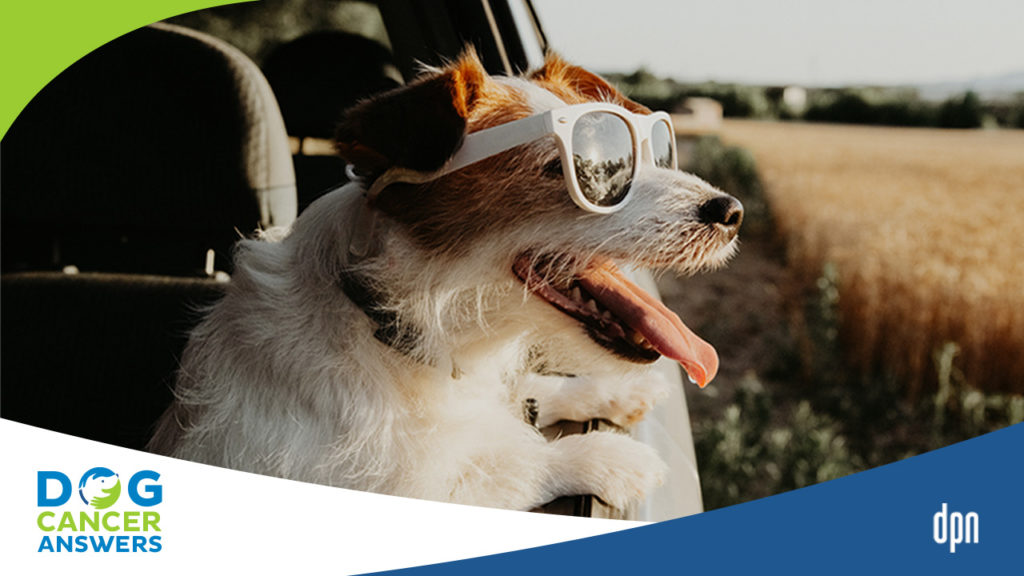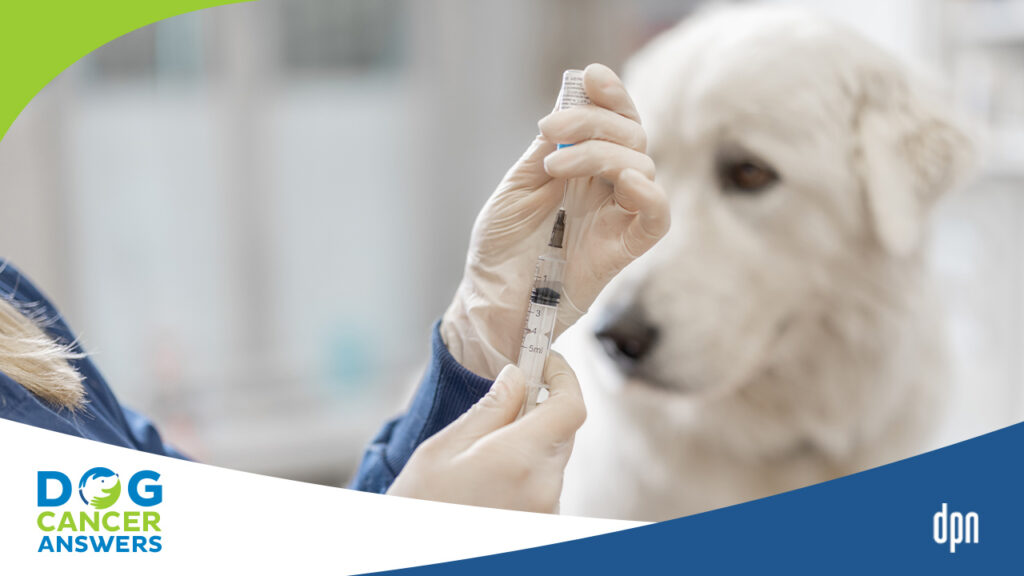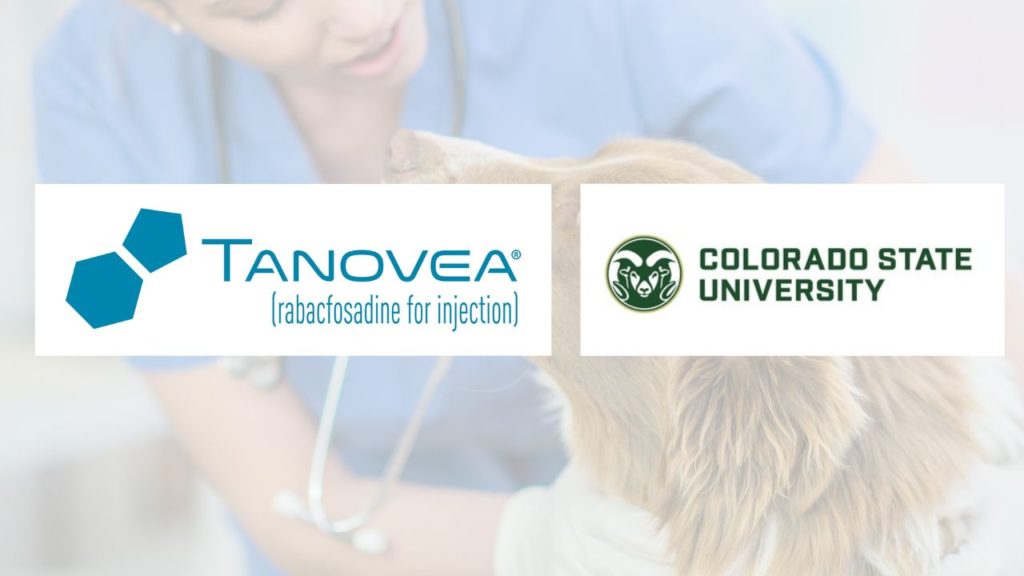The Vaccination Against Canine Cancer Study (VACCS trial) is currently underway. This study is unique because it is not looking at a treatment method. Instead, it is evaluating a new cancer vaccine for dogs that will hopefully prevent multiple cancer types. If successful, the study could provide important information not only for canine cancer prevention, but also for human cancer prevention.
Key Takeaways
- Participation in this trial is free with an incentive for veterinary care. If a commercial vaccine comes out of it, it will cost between $100 and $500 per dose, in the same range as infectious disease vaccines.
- The Vaccination Against Canine Cancer Study (VACCS trial) is a clinical trial evaluating a new vaccine for dogs that aims to prevent multiple types of cancer.
- The study is being led by Stephen Johnston, a non-veterinarian scientist at Arizona State University. It is funded by a $6 million grant from the Open Philanthropy Project.
- Healthy dogs between 5.5 to 11.5 years old and weighing at least 12 lbs can participate in the trial if they live near a trial location.
- The trial is double-blind, meaning neither the owners nor injectors know which dogs receive the vaccine or placebo. The trial is ongoing and is expected to run for five years.
What Is the Cancer Vaccine the VACCS Trial Is Investigating?
Researchers have identified proteins produced early in the development of multiple types of cancer that the immune system can recognize as foreign and therefore mount an attack against. These proteins are called tumor antigens.2 Now, researchers are trying to develop a cancer vaccine for dogs to take advantage of this weakness.
The purpose of this study is to determine if vaccination with these proteins could prime the immune system to identify cancer in the early stages and defend against it.3 Vaccination of mice with these antigens showed promising results, delaying or preventing multiple cancer types without side effects.2
This vaccine is being given to dogs in the trial so the researchers can see if they also are protected from cancer over time. The hope is that multiple cancers will be delayed or prevented, as they were in the early mice trials.
Who Is Behind the Cancer Vaccine for Dogs for the VACCS Trial?
The vaccine was developed by Stephen Johnston, a scientist and professor at Arizona State University and the director of the Biodesign Center for Innovations in Medicine.
The study was made possible by a $6 million grant given to Johnston by the Open Philanthropy Project.3 “The vaccine may not be effective, but this is probably the only approach to this type of vaccine, so we feel we have to try it. The implications of success would be quite large — for dogs and people,” said Johnston.5
How Much Does the Vaccine Cost?
The trial participants do not pay for the vaccine itself, and they even receive some compensation for their vet bills. (To learn more about how clinical trials work, here’s a good podcast to listen to.)
If successful, Johnston has said he will eventually hope to price the commercial version of the vaccine at about the same as infectious disease vaccines: between $100 and $500.6
Which Dogs Can Participate in the VACCS Trial?
Dogs of specific breeds, including mixed breeds, between the age of 5.5 and 11.5 years old and weighing at least 12 lbs. can participate.4
The dogs must be healthy, without previous autoimmune diseases, and can’t be receiving treatment with oral or injectable immunosuppressive medications like prednisone, cyclosporine, mycophenolate, or tacrolimus.
Before admission to the study, they undergo a full assessment including a physical exam, bloodwork, urinalysis, chest radiographs, and abdominal ultrasound. 2
About VACCS
This is a double-blind study, meaning neither the owners nor injectors know which dogs receive the cancer vaccine for dogs, and which dogs receive the placebo.
Initially each dog receives a series of four vaccines given every two weeks, then they are boosted annually thereafter. Side effects are typical of other vaccines: minimal, with a bit of pain at the injection site and possibly a slight fever or flu-like symptoms.
The dogs go about their normal lives at home and are checked two to three times per year for the next five years.3 Their humans receive a financial incentive for veterinary care.
Dr. Jenna Burton explains how the VACCS trial is developing in this episode of DOG CANCER ANSWERS.
VACCS Trial Locations
Three Universities are acting as trial locations:
- The University of Wisconsin-Madison in Madison (accepting new patients)
- Colorado State University in Fort Collins (accepting new patients)
- The University of California in Davis
Because of the frequent visits needed at the start of the study, dogs are required to live within 150 miles of one of these universities.
How to Join VACCS
There is a lot to consider before joining any clinical trial. However, if you want to help find out if this vaccine will help prevent cancer in dogs and humans in the future, you might be able to enroll your healthy dog in the VACCCS trial.
If you live near a trial site, submit a screening survey at: https://redcap.ucdenver.edu/surveys/index.php?s=FJXLNCAAPF or contact vaccs@vetmed.wisc.edu.
At the time of this writing the locations in Wisconsin and Colorado are still accepting new patients.
- Vaccination against canine cancer study. UW Veterinary Care. https://uwveterinarycare.wisc.edu/veterinary-clinical-studies/oncology/vaccs/. Published September 23, 2020. Accessed November 15, 2022.
- VACCS: Vaccination Against Canine Cancer Study. StudyPages. Accessed November 15, 2022. https://studypages.com/s/vaccs-vaccination-against-canine-cancer-study-234565/
- World’s largest canine cancer vaccine trial begins. ASU News. Published May 8, 2019. Accessed November 15, 2022. https://news.asu.edu/20190508-discoveries-world%E2%80%99s-largest-canine-cancer-vaccine-trial-begins
- Vaccination Against Canine Cancer Study. Flint Animal Cancer Center. https://www.csuanimalcancercenter.org/vaccination-against-canine-cancer-study/
- Clinical Trial Tests Universal Vaccine Against Canine Cancer. Today’s Veterinary Nurse. Published May 10, 2019. Accessed November 16, 2022. https://todaysveterinarynurse.com/news/clinical-trial-tests-universal-vaccine-against-canine-cancer/
- Lord B, Smith J. These dogs are getting a cancer vaccine. if it works, humans could be next. CNN. https://www.cnn.com/2019/06/21/health/cancer-vaccine-dog-trial/index.html. Published June 24, 2019. Accessed January 30, 2023.
Topics
Did You Find This Helpful? Share It with Your Pack!
Use the buttons to share what you learned on social media, download a PDF, print this out, or email it to your veterinarian.





